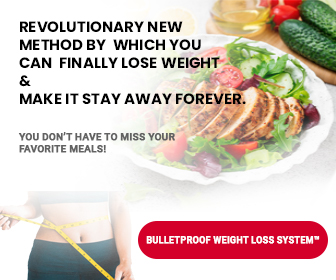How to Lose Weight for Cycling the RIGHT Way
Hey what’s up guys welcome to another video my name is Dylan and I’m a cycling coach in cts and today we’re gonna be talking about how to lose weight for cycling the right way there are a lot of weight loss strategies out there and regardless of what they tell you their secret is the root of why they caused you to lose weight is because in one way or another you’re eating less calories than you previously had this can be hard to maintain though which is why most people who go on diets fail and regain the weight back the strategy I’ll be going over here has a lot of science to back up its long term success and is one of the healthiest ways to go about losing weight on top of all of this the science shows it can help boost your recovery after a hard workout I’m talking about understanding the concept of calorie density and utilizing it in your own diet I’ll explain that concept go into a little bit of science and then get into some practical tips that you can use to implement this strategy in your own life so be sure to stick around for that if you’re new to this channel I make weekly training topic videos going over tips and tricks that I’ve learned in my 12 years of racing and training experience that have gotten me to the top of the ultra endurance mountain bike am in the US and as a cycling coach at cts I also go into the science on your training questions so if you want to learn how to get faster or just more about sports science in general be sure to subscribe and hit the notification bell so you don’t miss anything if you have a training question or a suggestion for a future video be sure to leave it in the comment section down below I do my best to answer all training questions in the comments section but the volume of comments has been really high recently so I apologize beforehand if I don’t get yours it’s that time of year when race season is fast approaching you’ve gotten in a pretty good base and are doing some good workouts but you step on the scale and realize that hmm that satellite bought this 20 grams lighter isn’t gonna make a whole lot of difference when I’m toting around a whole old steel road bikes worth of extra body weight or maybe you’re not an overweight weight weenie and you’re just overweight and most of the reason you ride your bike is to get healthier and lose weight either way what I’m about to go over applies to you now you may be sitting there thinking to yourself what is this skin twenty-something who probably has the metabolism of a racehorse gonna tell me about weight loss I look like him when I was his age and I ate whatever I want I understand but what I’m about to share is demonstrated in a scientific literature not just my own experience let’s go ahead and jump into some science by starting off with why losing weight can be such a challenge even as an athlete who trains four hours a week for starters it turns out that the weight loss from exercise might be lower than you think a review on metabolic adaptations to weight loss and athletes stated that low energy intake and minimal body fat are perceived as indicators of energy unavailability resulting in a homeostatic endocrine response aimed at conserving energy and promoting energy intake so basically as you reduce your food intake and get leaner your body fights back and this is for a number of reasons like changes in energy expenditure mitochondrial efficiency and circulating hormone concentrations all right Dylan but I don’t need a study to tell me that weight loss is hard okay all I got to do is look in the dang mirror when I’m wearing a skin suit to tell me that something ain’t working just get to what I need to know already alright let’s jump into it the strategy I’m talking about involves calorie density calorie density is just as the name implies how many calories are packed into a certain proportion of food and calorie density varies wildly 100 grams of potato chips which is what someone might reasonably eat in one sitting if they don’t just eat the whole bag is around 536 calories while a whole head of lettuce is just 53 calories Wow such great insight Dylan potato chips have more calories and lettuce the point I’m making is that the calories in the food we varies dramatically and if we focus our diet on low calorie density foods then we don’t have to reduce our portion size in order to reduce the calories that we consume and we can say satisfied and satiated with the amount of food we eat and we don’t have to starve ourselves so what do low-calorie density foods look like as we can see from this calorie density chart the foods with the lowest calorie density are vegetables averaging just point two calories per gram and then fruits averaging just 0.7 calories per gram these are the two food groups you want to focus on not just because they’re extremely healthy but also because they have the lowest calorie density meaning you can eat a lot of them without gaining weight you want to lose weight then bump up that fruit and vegetable intake okay so this whole calorie density thing is great in theory but does it have any science to back it up has it been put to the test a study on energy density of foods effects on energy intake took 18 subjects and provided them with meals for two days during 3 separate testing sessions in these three sessions the subjects consumed either low medium or high energy density or calorie density meals the results showed that significantly more calories were consumed for the higher energy density conditions even though the amount of food by weight was relatively similar calories consumed were around 1,800 calories for the high energy density group and below 1,400 for the low and that’s the key here with energy density you don’t have to reduce your portion size or starve yourself to lose weight and 400 calories is the kind of deficit we’re looking for to have consistent gradual weight loss the study concluded that energy density influenced energy intake independent of macronutrient composition and that subjects reported no difference in feelings of hunger or fullness okay that’s great but that was two days of eating how does eating low calorie density stack up in the long term a study on energy densities effects on weight change over 6 years took 186 subjects and measured the energy density of their diet six years later they found that the energy density of the diet had not changed for the individuals and that a higher energy density was associated with weight gain and a higher BMI the study concluded that low energy density diets moderate weight gain and that lower energy density can be achieved by consuming more fruits and vegetables and these are just two studies out of many a systematic review on dietary energy density and body weight looking at many studies concluded that their findings highlight the growing body of scientific evidence suggesting a relationship between energy density and body weight and that consuming diets low in energy density may be an effective strategy for managing okay so lowering the energy density of your diet by increasing the amount of fruits vegetables and other whole foods that you eat will help with your weight but what does this actually look like in practice a study done on salad and satiety took 42 subjects and have them eat a meal with a low medium or high calorie density salad before a main course of pasta they manipulated the energy density of the salad by changing the amount of dressing and cheese they put on it what they found was that a low energy density salad reduced the total caloric intake of the meal since subjects ate less pasta afterwards and what’s crazy is that an even bigger salad reduced intake even further so more food less calories the opposite was found with the high calorie density salad with dressing and cheese eating the salad increased the total number of calories consumed during the meal the study concluded that eating a low energy dense first course enhances satiety and reduces meal energy intake and then consuming a large portion of a low energy dense food at the start of a meal may be an effective strategy for weight management okay Dylan all of this is well and good but I didn’t see any of these studies use athletes I’m a high-performance thoroughbred race machine who won the town sprint at the Tuesday night group ride that one time when the fast guys took a recovery day not some quote normal study subject fair enough and guess what the inclusion of high amounts of fruits and vegetables is actually even more important for athletes not just because it’ll lower the calorie density of their diet but because it will improve the recovery after hard workouts because of the increased antioxidant intake let’s jump into some science to see how various fruits and vegetables improve your recovery a study looking at the effect of tomato juice on oxidative stress took 50 male track athletes and divided them into two groups a control group and an experimental group that drank tomato juice after their workouts they tested both groups in a 12-minute time trial before and after and found that those drinking tomato juice ran significantly farther than they previously had while the control groups on no improvement the tomato juice drinkers also showed a reduction in markers of oxidative stress leading to the conclusion that the antioxidant lycopene in the mate Oh reduce oxidative stress and improved performance these sorts of findings are all over the scientific literature a study on lemon juice and exercise induced oxidative stress found the same thing concluding that the lemon did not block the cellular adaptive response but also reduce cellular oxidative damage cherry juice has been shown to increase antioxidant capacity after a marathon leading to aided recovery and in another study reduce symptoms of exercise induced muscle damage that’s Lenny sure that strength loss after eccentric exercise was 22% with a placebo but only 4% when subjects consumed cherry juice blueberries are another rich source of antioxidants and have been shown to reduce inflammation after two and a half hours of running now notice how over the course of this video I haven’t said anything about your macronutrient ratio meaning carbs protein and fat and that’s because your macronutrient ratio is a whole lot less important to weight loss than you think it is a study comparing weight loss diets with different components of fat protein and carbs took 811 overweight adults and assign them to various diet groups with different ratios of carbs fat and protein which the subjects follow for two years what they found was that there was no difference in weight loss between the different diet groups they concluded that reduced calorie diets result in meaningful weight loss regardless of which macronutrient they emphasize if you’re thinking about your diet in terms of macronutrients then you’re thinking about it in the wrong way carbohydrates could come from sweet potatoes or candy fat could come from walnuts or hydrogenated vegetable oil what you need to do is focus your diet on whole foods not processed ones and in particular the low calorie density ones like fruits and vegetables that’s the science on how understanding and applying the concept of calorie density to your own diet can help you lose weight basically your mom was right eat your veggies not exactly groundbreaking stuff it’s pretty common advice that we’ve all heard before and that’s because it works it isn’t a fad diet now what are some practical tips that you can use to implement this into your own life for starters stop thinking and vegetables as your side and start thinking of them as course when you prepare a dish start with thinking about what vegetables you’re going to use and then add in the other food groups and make sure vegetables take up the majority of your plate having a salad with every meal is another great way to lower your calorie density as we saw just so long as you don’t use high-calorie toppings use fruit as your snacks throughout the day and after rides to capitalize on those antioxidants for aid in recovery my go-to after a hard ride is a bowl of oatmeal with a high antioxidant fruit like berries and be sure you stick to Whole Foods as we can see there is a huge difference in calorie density between processed and unprocessed carbohydrates for example finally you want to lose weight gradually instead of all at once because that will help you keep it off and large calorie deficit swill compromise your performance and recovery make sure you’re losing weight before your competition season not during and make sure you’re well-fed for your high intensity workout so you can get the most out of them thanks for watching I hope you guys found this information helpful if you like this video be sure to give it a like share it with a friend and subscribe for more training tips if you want to see more coaching content be sure to follow me on Instagram Twitter and Facebook and if you want to follow my training leading into this upcoming season be sure to check me out on Strava finally if you’re looking for a coach shoot me an email at D Johnson a train ride calm [Music]

The Unexplainable Store® ᴀᴜᴅɪᴏ ʙʀᴀɪɴᴡᴀᴠᴇ ꜱᴛɪᴍᴜʟᴀᴛɪᴏɴ ᴀɴᴅ ᴄʀʏꜱᴛᴀʟꜱ ᵃᵘᵈⁱᵒ ᵇʳᵃⁱⁿʷᵃᵛᵉ ˢᵗⁱᵐᵘˡᵃᵗⁱᵒⁿ ᵃⁿᵈ ᶜʳʸˢᵗᵃˡˢ The Unexplainable Store – Unleash the power of your brain $9.⁹⁹ / mo. $8.⁹⁹ / mo. Billed $26.⁹⁹ quarterly FOREVER $249.⁹⁹ save $100.⁰⁰






